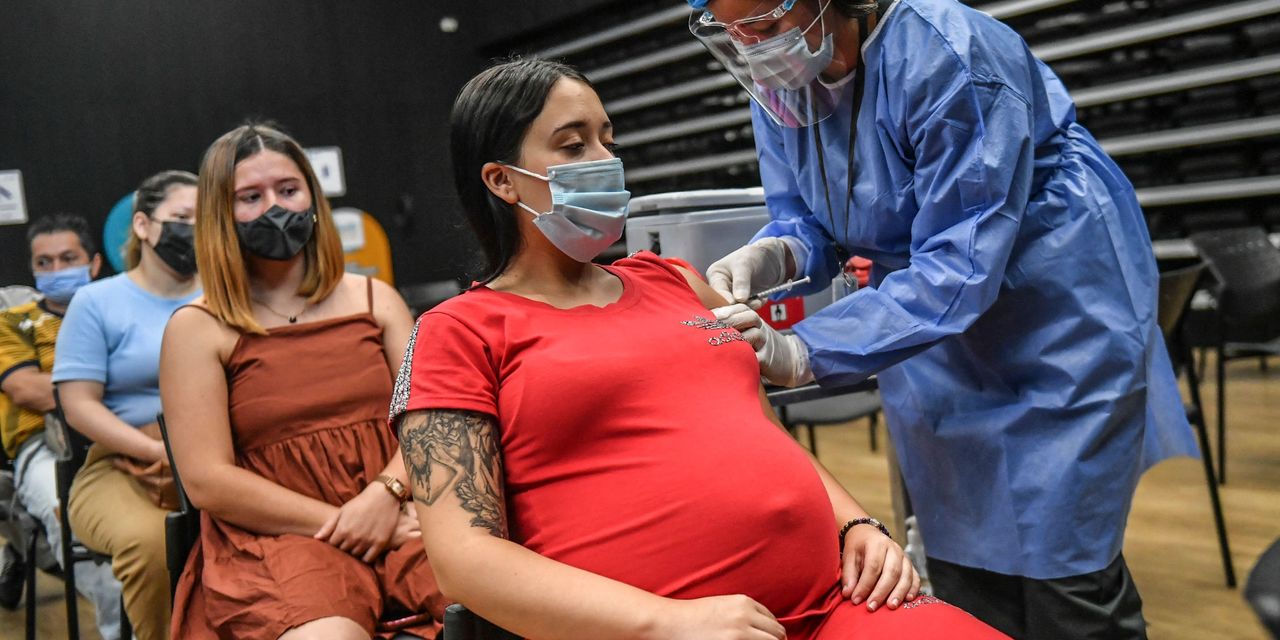
States that have restricted access to abortion or are planning to do so have fewer maternal-care providers and higher rates of maternal and infant deaths, according to research released this week by the Commonwealth Fund, a private foundation focused on improving healthcare for low-income and uninsured people and for people of color in the U.S.
And new restrictions on reproductive health care, experts say, could make the situation worse.
In June, the Supreme Court overturned Roe v. Wade, the 1973 decision that had ensured federal protection for abortion services. Since then, 12 states have banned abortion completely, while 14 other states have introduced various restrictions to access for abortion services, according to the latest tally by the Guttmacher Institute, a public-health think tank that supports abortion access.
The Commonwealth Fund study looked at national birth and death data from the U.S. Centers for Disease Control and Prevention, the U.S. Bureau of Health Workforce’s Area Health Resources Files and the Commonwealth Fund’s own 2021 report on racial and ethnic equity.
The study found that from 2018 to 2020, there were more maternal deaths in the states that have proposed at least some restrictions on abortion access since the Supreme Court decision than in the states that have not proposed new restrictions.
In 2020, on average, there were 28.8 maternal deaths per 100,000 births in states that had abortion restrictions or plans to restrict access to abortion, while other states on average had 17.8 maternal deaths per 100,000 births.
States where abortion is banned or restricted also had worse perinatal outcomes than states that provide access to abortion services. In 2019, fetal deaths or infant deaths in the first week of life in states the study refers to as “abortion-restriction states” occurred at a rate 15 percentage points higher than in “abortion-access states,” the study found. The pattern also applies to infant deaths in the first year after birth. Non-Hispanic Black infants have higher mortality rates in states with restrictions than infants of any other group.
Lack of maternal-care providers
The higher mortality rates for mothers and infants in those states were primarily due to a lack of maternal-healthcare providers, the study said.
The issue is a systemic one that results in part from institutional racism, previous research suggests. The study authors said that state leaders need to invest in more maternal-care providers, including birthing centers, doulas, physicians and nurses.
In 2020, 39% of counties in abortion-restriction states were regarded as maternal-care “deserts,” as compared with 25% of counties in abortion-access states. A maternal-care desert is a county without a hospital or birth center offering obstetric care or one without any obstetric-care providers, as defined by the March of Dimes, a nonprofit focused on maternal and infant health.
Abortion-restriction states have a higher rate of births in rural areas than do abortion-access states, and rural areas tend to have fewer healthcare services, authors said.
There are also fewer resources available to pregnant women in abortion-restriction states. In 2020, there were on average 117 obstetricians and certified nurse-midwives per 10,000 births in abortion-restriction states, compared with 159 in other states.
In 2022, more than 2.2 million women of childbearing age lived in maternal-care deserts, according to a March of Dimes maternity-care report. An additional 15,933 women had no maternity care as compared with 2020, the report found.
The resource gap in healthcare providers could get even worse in a post-Roe world if nothing is done to address it, said Eugene Declercq, a professor of community health sciences at Boston University School of Public Health and one of the authors of the Commonwealth Fund study.
“Already, [abortion-restriction states] have fewer obstetricians and fewer midwives per birth than the states that have access, and it might be challenging for those states to draw in more providers given the uncertain political atmosphere that they have been working in,” he told MarketWatch.
After the Supreme Court decision, many clinics that provided abortion services in states restricting access to abortion closed, and some obstetricians, fearful of running afoul of the law in their states, were considering practicing elsewhere, Declercq said.
Since the reversal of Roe, some hospitals and doctors have been hesitant to treat patients with miscarriages and in some cases have even refused to do so for fear of facing criminal charges themselves. Some treatments for miscarriage utilize medications or procedures that are listed in abortion restrictions.
Lack of affordable health insurance
Paying for birth-related healthcare is also more difficult for patients in abortion-restriction states, the Commonwealth Fund study found.
“We’ve structured a system in the United States that essentially focuses maternal care on the health of the baby and not the mother,” Declercq said. “And that’s most clearly identified in the fact that we don’t have universal health insurance.”
Mothers in abortion-restriction states rely on Medicaid to pay for birth-related services more than those in other states, the study found: In 2020, 44.8% of births in abortion-restriction states were paid for by Medicaid, compared with 38.7% of births in abortion-access states.
Many low-income women begin their pregnancies without insurance, sign up for Medicaid while pregnant and then lose the coverage when they reach Medicaid’s 60-day postpartum limit, Declercq said. But, he noted, maternal mortality and complications from giving birth can occur up to one year after the birth of a baby, at which point many women may longer have medical insurance.
The American Rescue Plan Act passed by Congress in 2021 gives states the option to extend Medicaid coverage to 12 months postpartum, and 26 states as well as Washington, D.C., had implemented that extension as of early December, according to the Kaiser Family Foundation.
















Add Comment